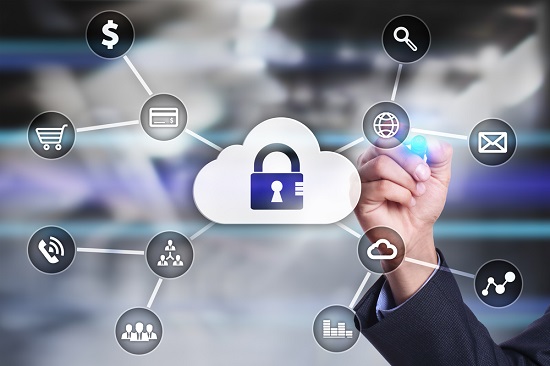
Cloud computing is an important step towards our digital future. However, migration has accelerated rapidly in recent years leaving many businesses at risk of cyberattack. This article will discuss the risks of cloud migration as well as the advanced software solutions that can be used to strengthen your defense.
The pace of digital transformation has increased at an incredible rate. In every industry, there have been significant changes in the operating systems, network, workforce structure, and other areas. Complete systems, including sensitive data, have been migrated to the cloud as a result of the abrupt transition to remote work.
Cloud computing security has many benefits, including cost savings, efficiency, and accessibility. However, cybersecurity risks are much more serious than those of rapid migration. Companies have rushed to implement cloud migration plans. This leaves data and teams vulnerable to cyberattack.
Many teams will continue to work remotely, while others have switched to a hybrid-workforce model, which combines on-site and remote workers. We are beginning to feel the full impact of workforce transformation and the cloud sector has taken on the burden.
Devo Technology’s latest report “Beyond Cloud Adoption” reveals that 90% of businesses increased their cloud computing use as a result the global pandemic. The report was based on a survey of IT security personnel and examines how cloud computing is changing security techniques and technologies.
According to the study about cloud computing:
68% think that cloud computing has made IT security operations more complicated.
Survey respondents agreed that cloud computing has resulted in an increase in security data analysis.
Over three quarters (79%) expect that cloud computing security spending will increase over the next twelve months.
Transitioning to the cloud poses many challenges, not only because of complex operations but also because of new data. Migration to the cloud can lead to reduced visibility and control, compliance violations and an increased risk of malware, data breaches, and other problems.
Cloud migration isn’t slowing down, despite the risks. Devo Technology reports that the cloud computing train is now at its destination. Large and small organizations are shifting workloads to the cloud and developing cloud-native apps. They also embrace SaaS applications. But, the implications remain: Cloud adoption success requires knowledge of cyberthreats, ongoing security management, and tactical security decisions.
Here are the top risks associated with cloud migration.
1. Exploited cloud apps
IBM data shows that cloud applications are the most popular entry point for attackers in cloud cases. This includes tactics like brute-forcing and exploiting vulnerabilities. Shadow IT is when employees go outside of approved channels and create vulnerable cloud apps.
Security of your application
Application security can reduce the chance of code hijacking, hacking, and other threats. You can obtain account authorization and authorization, records about users’ in-app activities, and encryption for cloud-based information with the right tools. Your team will be protected with powerful post-deployment protection that allows them to continue accessing the apps they need.
Risk #2: Ransomware attacks
Ransomware has quickly become the cyberweapon choice for hackers. Ransomware is a form of extortion malware that encrypts your files and operating system, and demands a ransom to unlock them. Malicious software, such as ransomware, can cause vulnerabilities in the cloud. It is often introduced to your system via phishing emails or poorly configured servers.
Security: Email security + Network and Infrastructure security
Email security software provides a strong defense against malicious messages in your email inbox. It reduces the risk of spam messages, viruses, malware, phishing attempts and other threats. These attacks can be prevented with advanced email security.
Additionally, increased security for your network devices will reduce vulnerabilities in your IT environment. These software solutions can secure your internal communications, resource sharing, data, and user files.
Risk #3: Data breach
Your data is the foundation of modern businesses, so it is crucial to protect it. Companies are increasingly using the cloud to store sensitive data due to the shift towards hybrid and remote work. This increases the risk of data loss as hackers have access to personal files, intellectual property, and other information in the cloud.
Defense: Data security + Identity access management
Cybersecurity solutions can keep your most important information safe, compliant, and uncorrupted. They include tools for encryption, tokenization, access, and tokenization. Identity and Access Management (IAM), solutions increase visibility and control over users in your network. They simplify how you manage user roles, track access activity and enforce permissions and policies.
Scale up and modernize with confidence
Smart security software can help make cloud migration positive, despite the inherent risks. Secure cloud solutions can help your business modernize and scale confidently, regardless of whether you use a hybrid, public or private cloud model.
The right tools allow employees to share resources across the cloud easily. You can also focus on higher-priority goals knowing that your data is secure and safe. Call SpartanTec, Inc. for more information.
SpartanTec, Inc.
Charleston, SC 29407
843-418-4792
https://manageditservicescharleston.com/
Serving: Myrtle Beach, North Myrtle Beach, Columbia, Wilmington, Fayetteville, Florence

No comments:
Post a Comment